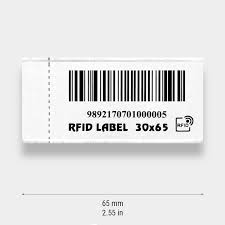Table of Contents
ПереключатьВведение
Radio-frequency identification (RFID) is a technology that allows for the rapid and secure transfer of data. Unlike barcodes, RFID does not require a line-of-sight, making it more convenient and versatile for many applications. RFID labels, containing small but powerful chips, store data related to objects. These chips operate on various radio frequencies, and RFID-считыватели are used to safely transfer data. This technology is widely adopted by businesses and transportation departments globally.

Benefits and Applications in Public Transit Systems
RFID technology has significantly benefited public transportation systems, particularly in ticketing processes. Traditional methods often involve long waits and manual errors. RFID technology changes this by allowing passengers to validate their tickets with ease. They simply need to pass an RFID-enabled card near a reader which automates the process. This results in shorter wait times and reduced human errors, enhancing operational efficiency for transport companies. For passengers, this technology offers a more seamless travel experience, leading to higher customer satisfaction and loyalty.
Enhancements in Vehicle Management
RFID labels also play a crucial role in vehicle tracking and management within the transportation industry. These labels enable real-time tracking of vehicles, ensuring transport companies can monitor vehicle returns and availability. The accurate data provided allows for optimization of vehicle usage, planning maintenance schedules, and improving overall efficiency. By tracking vehicles as they arrive at stations, RFID further streamlines the management process, contributing to better service and operational planning.
Improvements in Equipment Rentals
The use of RFID-метки in equipment rental services helps mitigate the risk of asset loss and theft. Companies can attach RFID tags to rental equipment, allowing continuous monitoring throughout the rental period. These tags provide real-time location data and usage information, helping rental companies track their assets accurately. This reduces the chances of discrepancies and unauthorized use, streamlining the return process and ensuring timely availability of equipment.
Advancements in Shipping Control
In shipping control, RFID technology enables effective tracking of containers. Each container can be equipped with an RFID tag that is scanned at various points during transit, such as departure ports, intermediary hubs, and final destinations. This provides real-time updates on the container’s location, enhancing visibility and control over the shipping process. The ability to monitor container movements helps logistics companies ensure timely arrivals and proper handling of shipments, improving supply chain efficiency and customer service.
Заключение
RFID label technology has been transformative across multiple industries, including transportation. By enabling faster and more secure data transfer, RFID technology enhances operational efficiency and service quality. Applications in public transit ticketing, vehicle tracking, equipment rentals, and shipping control illustrate its wide-ranging benefits. Transportation companies leveraging RFID technology can achieve better resource management and improved customer satisfaction, driving business success. As the technology advances, its potential for further applications and innovations continues to grow, promising greater efficiencies and advancements.
